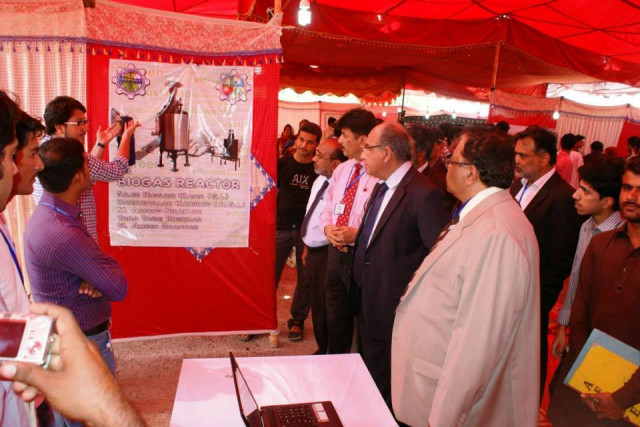Government should utilise alternative sources of energy, say experts
Speakers at MUET conference suggest harnessing biomass and microbial species for biofuel.

The government should utilise municipal solid waste (MSW), biomass, microbial species and coal for energy production, suggested energy and environmental experts at the concluding ceremony of a three-day international conference on 'Energy, Environment and Sustainable Development' on Thursday.
Organised by Mehran University of Engineering and Technology (MUET), the conference emphasised the need to harness the biomass and microbial species that can be used as biofuel, as an alternative to fossil fuels. The speakers also called for the efficient utilisation of not only coal for power generation, but also of gasoline, diesel, synthetic gas and a variety of other hydrocarbons.
Dr Shahid Hussain, an assistant professor at the National University of Science and Technology, said that a ton of MSW could produce 0.75 barrels of liquid diesel. An estimated 21.6 million tons of MSW were produced in Pakistan every year. "This liquid technology can even be used to produce cleaner fuels," he claimed.
"MSW compost, a mixture of decayed plants or food, can also be used to increase soil productivity of agricultural crops," said Dr Malik Inayatullah Jan of Khyber Pakhtunkhwa's University of Agriculture. "Sewage and dairy sludge can also contribute to the same purpose."

Meanwhile, Pakistan Institute of Engineering and Applied Sciences' Dr Tayyab Javed declared that Thar coal's nitrogen and sulphur oxide emissions met European standards, basing his contention on experimental research conducted on 150 kilogrammes of coal obtained from Tharparkar. The research, funded by the Higher Education Commission of Pakistan and the British Council, was carried out at Leeds University between 2011 and 2014 in collaboration with MUET and Punjab University, and the study was published in the American Chemical Society's journal 'Energy and Fuel'.
"Both readings were within the permissible limits, and they suggest that the coal can be environmentally friendly and safe," he said. "The test proved that the presence of sulphur and nitrogen in Thar coal is around two per cent and less than one per cent respectively." Terming it a major breakthrough, he added that the combustion efficiency of Thar coal was 94 per cent. The desert region of Tharparkar has estimated coal reserves of 175 billion tons, according to him.
The speakers further highlighted the need to address the depleting fossil fuel reserves, which also affect the environment, by harnessing solar, wind, hydro, biomass and geothermal sources of energy production.
Earlier, MUET vice-chancellor Dr Mohammad Aslam Uqaili drew attention towards the constant waste of natural resources, warning of consequences for future generations. He called for creating public awareness about the use of energy and resources with the aim to promote conservation.
Dr Lian Hai Ren, Hong Yu Feng, Su Li, Weiguo Zhou, Zhan Yunbo and Zhang Hong from China, along with researchers from Japan, Turkey and South Korea, read their papers on the subject.
Published in The Express Tribune, October 25th, 2014.



















COMMENTS
Comments are moderated and generally will be posted if they are on-topic and not abusive.
For more information, please see our Comments FAQ